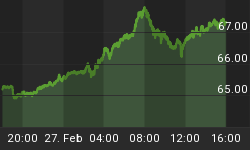I talked to Ron Paul last weekend about the massive financial reform bill that is being finalized in Congress. The House and the Senate have each passed their respective versions of the bill, and now the two must be merged. The result will be the most comprehensive reformation of U.S. financial regulation since the Great Depression.
Conferences are very important in defining the ultimate language of the bill that will be signed into law, so committee seats are highly coveted. Members are wined and dined by lobbyists and showered with campaign contributions, as they have the power not only to merge the bills and determine final language, but also to add new stuff -- stuff that was never debated in either house. Matt Taibbi describes this on pages 44-46 in his book The Great Derangement. Theoretically the entire bill can be rewritten in Conference. In secret.
After the two bills are reconciled, a conference report is issued and the House and Senate vote again on the new, combined bill. Conference reports are thus incredibly important. Unfortunately, members of congress have become so derelict in their duty that they barely take a second look at the new bill, instead striking the attitude, "We already voted on this once," and rubber stamping it through. Contributing to this problem is the length of the bills. The working draft of the current financial reform legislation is already close to 2,000 pages. Members may only be given a few days -- or a few hours -- before a vote takes place.
Something is dreadfully wrong with this process.
As for this conference, many of the meetings will be conducted in public, and CSPAN will be covering the sessions, which begin today (Tuesday, June 15, 2010), live. This is an opportunity to see our representative government in action, but more importantly, to influence the outcome.
Of particular interest to the Liberty Movement, Tea Partiers, and Progressives (i.e. Americans), is Paul's HR 1207, which is included in the House version of the legislation as the Paul-Grayson amendment, and which calls for complete transparency and a full audit of the Federal Reserve. Unfortunately, the committee is starting with the Senate's weaker version of the legislation, which includes only the watered down, one time peek at the Fed's books. It is therefore essential that conferees add the undiluted language of the Paul-Grayson amendment when reconciling the Senate and House versions of the Financial Reform Bill. Only this will insure a thorough, complete, and ongoing audit of the Fed.
As part of a 'motion to instruct' delivered on the House floor, Dr. Paul urged the committee to remember its responsibility to the American people and to reject the idea that the Federal Reserve can remain a secret, opaque institution beyond the scrutiny of the American public and Congress:
Ron Paul is one of us. Like you and I, he is gravely concerned about the threats to our freedom. He is different from us in that he is actually in a position to influence policy at the highest levels of government. He's the point man, but he needs our help.
What We Can Do for a Fed Audit
This is crunch time. The bankers and lobbyists will be working hard to keep the real audit language (HR1207) out of the final legislation. But we have a voice, too, through our representatives. That is why ours is called a representative government.
Of the House Conferees, 15 of 31 members are co-sponsors of HR 1207, including all Republican members (Bachus, Royce, Biggert, Capito, Hensarling, Garrett, Lucas, Barton, Smith (TX), Issa, and Graves), and four Democrats (Peterson, Boswell, Conyers, and Shuler).
The sixteen (16) Democrats who have not cosponsored HR 1207 are listed below. Their names are conveniently hyperlinked to their contact pages so that you may easily focus your energy on emailing, calling and/or faxing them to express your support for a full and complete audit of the Federal Reserve, and the inclusion of the Paul-Grayson Amendment / HR 1207 in the final financial reform legislation. Be sure to remind them that 80% of Americans want a full audit of the Federal Reserve.
Barney Frank (D - MA)
Paul Kanjorski (D - PA)
Maxine Waters (D - CA)
Carolyn Maloney (D - NY)
Luis Gutierrez (D - IL)
Mel Watt (D - NC)
Gregory Meeks (D - NY)
Gwen Moore (D - KS)
Mary Jo Kilroy (D - OH)
Gary Peters (D - MI)
Henry Waxman (D - CA)
Bobby Rush (D - IL)
Howard Berman (D - CA )
Ed Towns (D - NY)
Elijah Cummings (D - MD)
Nydia Velazquez (D - NY)
Of the Senate Conferees, five have co-sponsored HR1207 (Crapo, Lincoln, Leahy, Harkin, and Chambliss). The seven Senate members to contact (again, conveniently hyperlinked) are:
Chris Dodd (D-Conn.)
Tim Johnson (D-S.D.),
Jack Reed (D-R.I.),
Charles Schumer (D-N.Y.),
Richard Shelby (R-Ala.),
Bob Corker (R-Tenn.),
Judd Gregg (R-N.H.)
I have been assured that contacting members has a real impact. Many listen. Many are worried about being reelected. Many just want their phones to stop ringing, their email inboxes to stop overflowing, and their fax machines untied.
Keep the pressure up and please spread the word.
- If you have comments on this article, please feel free to drop me an email at: bull@bullnotbull.com
- New charts, news and financial links -- both the bull and the not bull -- updated each day on the homepage.
- If you would like to be notified of updates, and new articles, subscribe to my low volume announcement list















